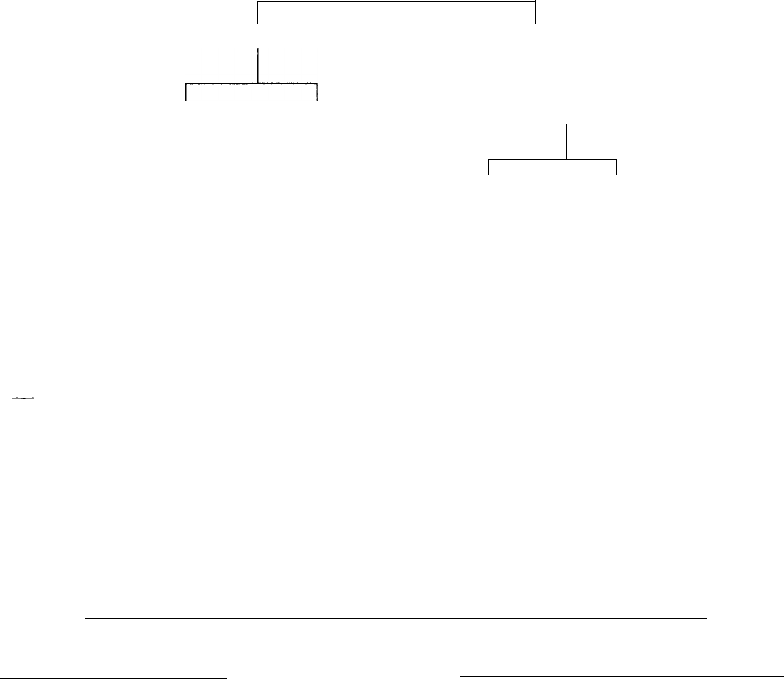
-
When you format your hard disk, MS-DOS creates a single
directory for the disk. This directory is called the root directory.
Because the hard disk has room for hundreds of files, MS-DOS
allows you to create additional directories, called
subdirectories.
Subdirectories allow you to organize your hard disk to keep files
of similar type or purpose together. Without subdirectories, it
would be difficult to keep track of all the files on your hard disk.
You can also create subdirectories on your diskettes. You may
find this useful for organizing the files on your backup diskettes.
The subdirectory structure of a hard disk can be represented
with a tree-like diagram, like this:
Root directory
I
LEDGER
WORDPROC
I
l-l
ACCOUNTS
SALES
BUSINESS
PERSONAL
STORIES LETTERS
In this example, the original directory (the root directory) has
two subdirectories, named LEDGER and WORDPROC. Each
of these subdirectories has subdirectories of its own. LEDGER
has two, named ACCOUNTS and SALES; WORDPROC also
has two, named BUSINESS and PERSONAL. The
PERSONAL subdirectory of WORDPROC also has two
subdirectories, named STORIES and LETTERS.
Using MS-DOS With Your Computer
3-7


















